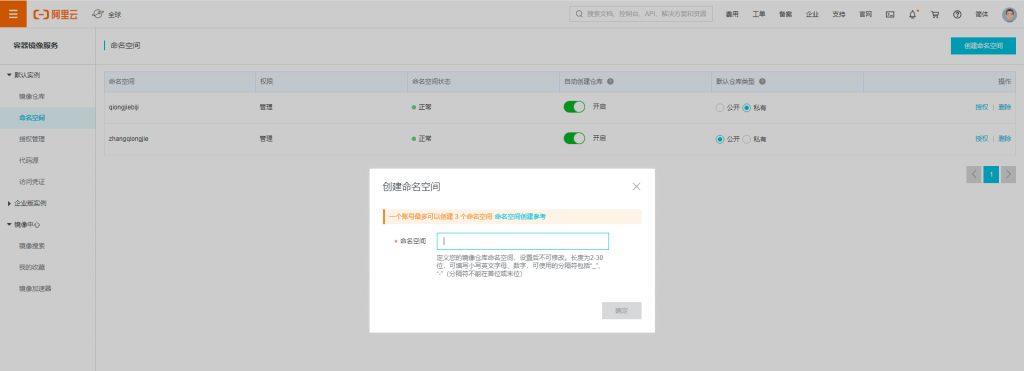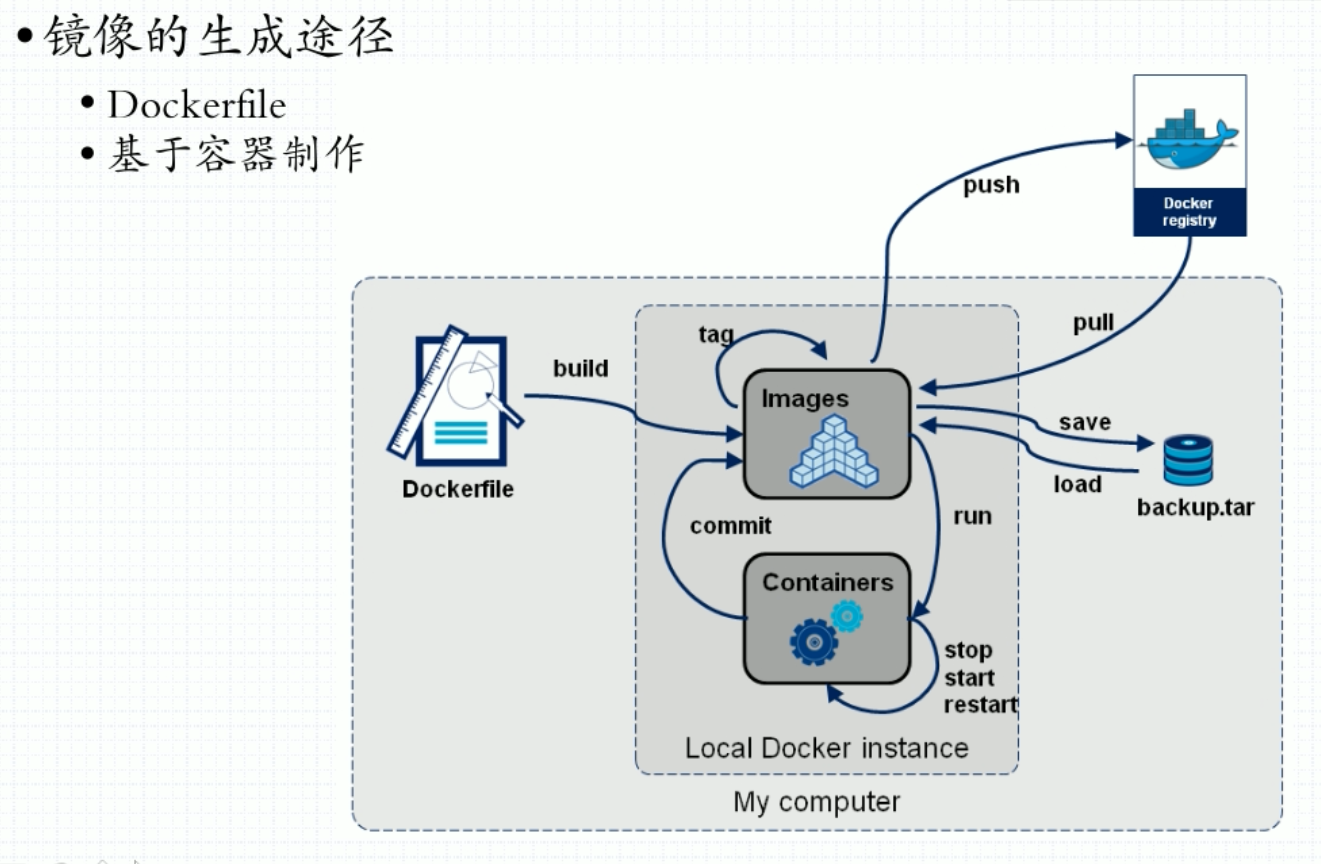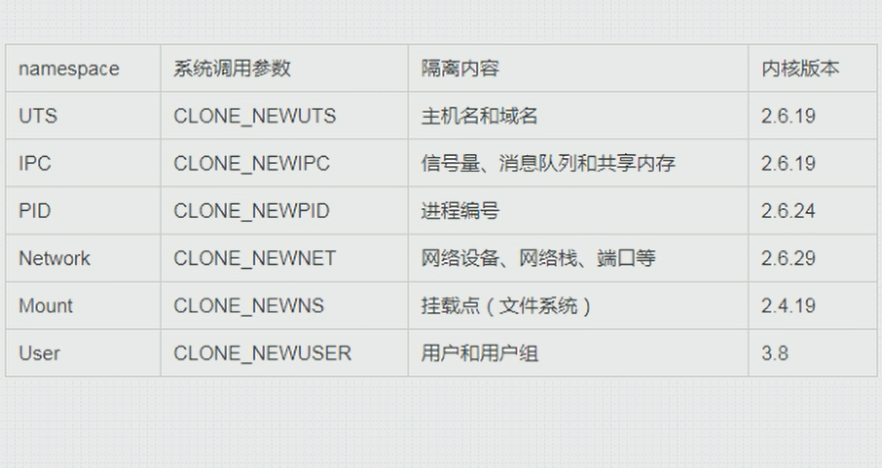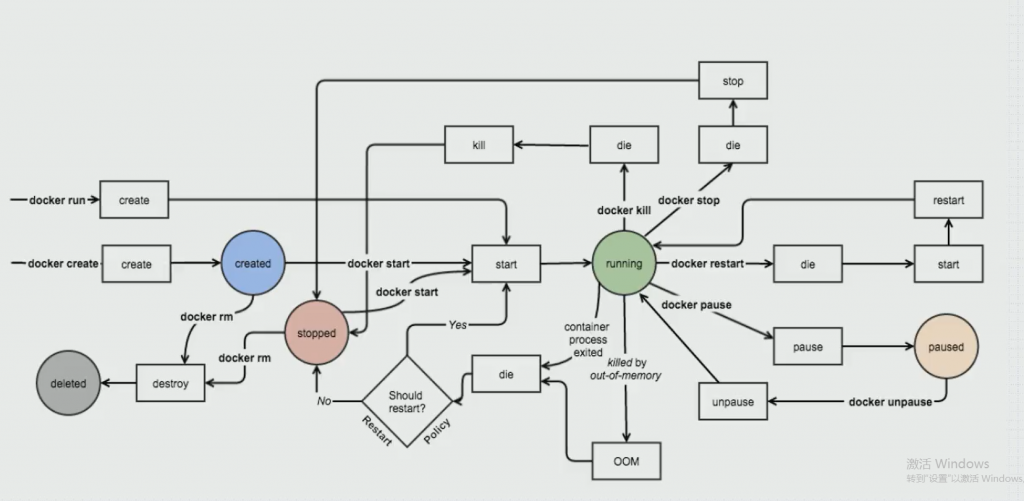一、docker资源限制背景
在Linux主机之上,如果内核发现有进程占用了大量的内存资源,将会抛出OOME(Out Of Memory Exception), 杀掉最占内存资源的进程,包括docker daemon在内。因此,Docker特地调整了docker daemon的OOM优先级,以避免被内核kill,但容器的优先级并未被调整。
默认情况下,docker容器没有任何资源限制,特殊情况下可耗尽所有主机资源。为了防止这种情况发生,Docker提供了通过控制容器使用CPU和内存资源的一些方法来限制docker运行所使用的资源。
二、docker资源限制方案
1.内存限制
在docker create或run时可以添加如下选项:
- -m or –memory= : 容器最大可使用的物理内存大小,最小值是4m(4 megabyte),单位可以是k/b/m/g等;
- -memory-swap * : 容器使用交换内存的大小,使用此参数必须指定物理内存-m选项才能生效;
- –memory-swappiness: 设置值在0到100之间,可以规定容器使用swap交换内存空间的倾向性;
- –memory-reservation: 设置预留内存空间;
- –oom-kill-disable: 设置为true可以禁止被kill,前提要设置-m物理内存才可以生效;

2.CPU限制
默认情况下,容器使用宿主机没有限制,cpu核心数小于进程数量,进程数量大于cpu核心数的时候,需要CFS调度器(scheduler)来处理进程执行的先后顺序,CFS调度器常用使用选项:
- –cpus=<value>: 设定可用cpu资源数量,例如:如果宿主机有2个cpu,可以设置–cpus=”1.5″,即使用1.5倍的CPU资源;
- –cpuset-cpus: 限制docker可以使用哪几个CPU资源,例如:4核cpu即分别为0,1,2,3,指定0-3则表示第一个到第三个CPU资源;指定1,3 则表示使用第2个和第4个CPU资源;
- –cpu-shares: 按比例使用CPU资源,设置一个数值,例如设置–cpu-shares为512或1024或2048等;
三、Docker资源限制压力测试实例:
1.下载docker压测镜像
下载docker-stress压测镜像,访问链接:https://hub.docker.com/r/lorel/docker-stress-ng
[root@ecs-e84a ~]# docker pull lorel/docker-stress-ng:latest latest: Pulling from lorel/docker-stress-ng Image docker.io/lorel/docker-stress-ng:latest uses outdated schema1 manifest format. Please upgrade to a schema2 image for better future compatibility. More information at https://docs.docker.com/registry/spec/deprecated-schema-v1/ c52e3ed763ff: Pull complete a3ed95caeb02: Pull complete 7f831269c70e: Pull complete Digest: sha256:c8776b750869e274b340f8e8eb9a7d8fb2472edd5b25ff5b7d55728bca681322 Status: Downloaded newer image for lorel/docker-stress-ng:latest docker.io/lorel/docker-stress-ng:latest
查看压测帮助选项
[root@ecs-e84a ~]# docker run --name stress -it --rm lorel/docker-stress-ng:latest --help stress-ng, version 0.03.11 Usage: stress-ng [OPTION [ARG]] --h, --help show help --affinity N start N workers that rapidly change CPU affinity --affinity-ops N stop when N affinity bogo operations completed --affinity-rand change affinity randomly rather than sequentially --aio N start N workers that issue async I/O requests --aio-ops N stop when N bogo async I/O requests completed --aio-requests N number of async I/O requests per worker -a N, --all N start N workers of each stress test -b N, --backoff N wait of N microseconds before work starts -B N, --bigheap N start N workers that grow the heap using calloc() --bigheap-ops N stop when N bogo bigheap operations completed --bigheap-growth N grow heap by N bytes per iteration --brk N start N workers performing rapid brk calls --brk-ops N stop when N brk bogo operations completed --brk-notouch don't touch (page in) new data segment page --bsearch start N workers that exercise a binary search --bsearch-ops stop when N binary search bogo operations completed --bsearch-size number of 32 bit integers to bsearch -C N, --cache N start N CPU cache thrashing workers --cache-ops N stop when N cache bogo operations completed (x86 only) --cache-flush flush cache after every memory write (x86 only) --cache-fence serialize stores --class name specify a class of stressors, use with --sequential --chmod N start N workers thrashing chmod file mode bits --chmod-ops N stop chmod workers after N bogo operations -c N, --cpu N start N workers spinning on sqrt(rand()) --cpu-ops N stop when N cpu bogo operations completed -l P, --cpu-load P load CPU by P %%, 0=sleep, 100=full load (see -c) --cpu-method m specify stress cpu method m, default is all -D N, --dentry N start N dentry thrashing processes --dentry-ops N stop when N dentry bogo operations completed --dentry-order O specify dentry unlink order (reverse, forward, stride) --dentries N create N dentries per iteration --dir N start N directory thrashing processes --dir-ops N stop when N directory bogo operations completed -n, --dry-run do not run --dup N start N workers exercising dup/close --dup-ops N stop when N dup/close bogo operations completed --epoll N start N workers doing epoll handled socket activity --epoll-ops N stop when N epoll bogo operations completed --epoll-port P use socket ports P upwards --epoll-domain D specify socket domain, default is unix --eventfd N start N workers stressing eventfd read/writes --eventfd-ops N stop eventfd workers after N bogo operations --fault N start N workers producing page faults --fault-ops N stop when N page fault bogo operations completed --fifo N start N workers exercising fifo I/O --fifo-ops N stop when N fifo bogo operations completed --fifo-readers N number of fifo reader processes to start --flock N start N workers locking a single file --flock-ops N stop when N flock bogo operations completed -f N, --fork N start N workers spinning on fork() and exit() --fork-ops N stop when N fork bogo operations completed --fork-max P create P processes per iteration, default is 1 --fstat N start N workers exercising fstat on files --fstat-ops N stop when N fstat bogo operations completed --fstat-dir path fstat files in the specified directory --futex N start N workers exercising a fast mutex --futex-ops N stop when N fast mutex bogo operations completed --get N start N workers exercising the get*() system calls --get-ops N stop when N get bogo operations completed -d N, --hdd N start N workers spinning on write()/unlink() --hdd-ops N stop when N hdd bogo operations completed --hdd-bytes N write N bytes per hdd worker (default is 1GB) --hdd-direct minimize cache effects of the I/O --hdd-dsync equivalent to a write followed by fdatasync --hdd-noatime do not update the file last access time --hdd-sync equivalent to a write followed by fsync --hdd-write-size N set the default write size to N bytes --hsearch start N workers that exercise a hash table search --hsearch-ops stop when N hash search bogo operations completed --hsearch-size number of integers to insert into hash table --inotify N start N workers exercising inotify events --inotify-ops N stop inotify workers after N bogo operations -i N, --io N start N workers spinning on sync() --io-ops N stop when N io bogo operations completed --ionice-class C specify ionice class (idle, besteffort, realtime) --ionice-level L specify ionice level (0 max, 7 min) -k, --keep-name keep stress process names to be 'stress-ng' --kill N start N workers killing with SIGUSR1 --kill-ops N stop when N kill bogo operations completed --lease N start N workers holding and breaking a lease --lease-ops N stop when N lease bogo operations completed --lease-breakers N number of lease breaking processes to start --link N start N workers creating hard links --link-ops N stop when N link bogo operations completed --lsearch start N workers that exercise a linear search --lsearch-ops stop when N linear search bogo operations completed --lsearch-size number of 32 bit integers to lsearch -M, --metrics print pseudo metrics of activity --metrics-brief enable metrics and only show non-zero results --memcpy N start N workers performing memory copies --memcpy-ops N stop when N memcpy bogo operations completed --mmap N start N workers stressing mmap and munmap --mmap-ops N stop when N mmap bogo operations completed --mmap-async using asynchronous msyncs for file based mmap --mmap-bytes N mmap and munmap N bytes for each stress iteration --mmap-file mmap onto a file using synchronous msyncs --mmap-mprotect enable mmap mprotect stressing --msg N start N workers passing messages using System V messages --msg-ops N stop msg workers after N bogo messages completed --mq N start N workers passing messages using POSIX messages --mq-ops N stop mq workers after N bogo messages completed --mq-size N specify the size of the POSIX message queue --nice N start N workers that randomly re-adjust nice levels --nice-ops N stop when N nice bogo operations completed --no-madvise don't use random madvise options for each mmap --null N start N workers writing to /dev/null --null-ops N stop when N /dev/null bogo write operations completed -o, --open N start N workers exercising open/close --open-ops N stop when N open/close bogo operations completed -p N, --pipe N start N workers exercising pipe I/O --pipe-ops N stop when N pipe I/O bogo operations completed -P N, --poll N start N workers exercising zero timeout polling --poll-ops N stop when N poll bogo operations completed --procfs N start N workers reading portions of /proc --procfs-ops N stop procfs workers after N bogo read operations --pthread N start N workers that create multiple threads --pthread-ops N stop pthread workers after N bogo threads created --pthread-max P create P threads at a time by each worker -Q, --qsort N start N workers exercising qsort on 32 bit random integers --qsort-ops N stop when N qsort bogo operations completed --qsort-size N number of 32 bit integers to sort -q, --quiet quiet output -r, --random N start N random workers --rdrand N start N workers exercising rdrand instruction (x86 only) --rdrand-ops N stop when N rdrand bogo operations completed -R, --rename N start N workers exercising file renames --rename-ops N stop when N rename bogo operations completed --sched type set scheduler type --sched-prio N set scheduler priority level N --seek N start N workers performing random seek r/w IO --seek-ops N stop when N seek bogo operations completed --seek-size N length of file to do random I/O upon --sem N start N workers doing semaphore operations --sem-ops N stop when N semaphore bogo operations completed --sem-procs N number of processes to start per worker --sendfile N start N workers exercising sendfile --sendfile-ops N stop after N bogo sendfile operations --sendfile-size N size of data to be sent with sendfile --sequential N run all stressors one by one, invoking N of them --sigfd N start N workers reading signals via signalfd reads --sigfd-ops N stop when N bogo signalfd reads completed --sigfpe N start N workers generating floating point math faults --sigfpe-ops N stop when N bogo floating point math faults completed --sigsegv N start N workers generating segmentation faults --sigsegv-ops N stop when N bogo segmentation faults completed -S N, --sock N start N workers doing socket activity --sock-ops N stop when N socket bogo operations completed --sock-port P use socket ports P to P + number of workers - 1 --sock-domain D specify socket domain, default is ipv4 --stack N start N workers generating stack overflows --stack-ops N stop when N bogo stack overflows completed -s N, --switch N start N workers doing rapid context switches --switch-ops N stop when N context switch bogo operations completed --symlink N start N workers creating symbolic links --symlink-ops N stop when N symbolic link bogo operations completed --sysinfo N start N workers reading system information --sysinfo-ops N stop when sysinfo bogo operations completed -t N, --timeout N timeout after N seconds -T N, --timer N start N workers producing timer events --timer-ops N stop when N timer bogo events completed --timer-freq F run timer(s) at F Hz, range 1000 to 1000000000 --tsearch start N workers that exercise a tree search --tsearch-ops stop when N tree search bogo operations completed --tsearch-size number of 32 bit integers to tsearch --times show run time summary at end of the run -u N, --urandom N start N workers reading /dev/urandom --urandom-ops N stop when N urandom bogo read operations completed --utime N start N workers updating file timestamps --utime-ops N stop after N utime bogo operations completed --utime-fsync force utime meta data sync to the file system -v, --verbose verbose output --verify verify results (not available on all tests) -V, --version show version -m N, --vm N start N workers spinning on anonymous mmap --vm-bytes N allocate N bytes per vm worker (default 256MB) --vm-hang N sleep N seconds before freeing memory --vm-keep redirty memory instead of reallocating --vm-ops N stop when N vm bogo operations completed --vm-locked lock the pages of the mapped region into memory --vm-method m specify stress vm method m, default is all --vm-populate populate (prefault) page tables for a mapping --wait N start N workers waiting on child being stop/resumed --wait-ops N stop when N bogo wait operations completed --zero N start N workers reading /dev/zero --zero-ops N stop when N /dev/zero bogo read operations completed Example: stress-ng --cpu 8 --io 4 --vm 2 --vm-bytes 128M --fork 4 --timeout 10s Note: Sizes can be suffixed with B,K,M,G and times with s,m,h,d,y failed to resize tty, using default size
2.内存压测
启动容器开始压测
您暂时无权查看此隐藏内容!
内容查看价格3.99元立即支付
注意:本站少数资源收集于网络,如涉及版权等问题请及时与站长联系,我们会在第一时间内与您协商解决。如非特殊说明,本站所有资源解压密码均为:zhangqiongjie.com。
作者:1923002089
 琼杰笔记
琼杰笔记







评论前必须登录!
注册